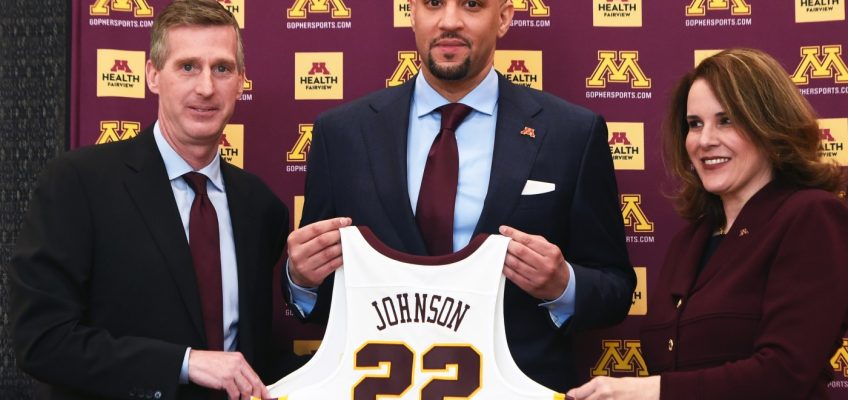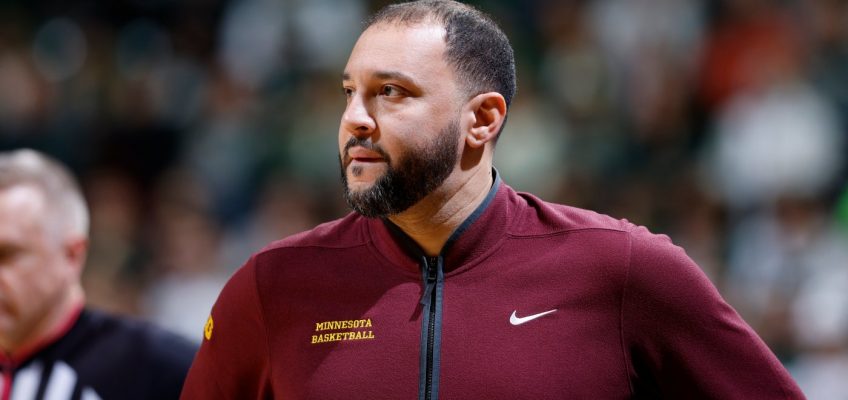A familiar scene played out Wednesday evening in Denver, Colorado — the Timberwolves ran the Nuggets off the floor.
Minnesota dominated its 115-95 victory from start to finish to improve to 3-0 this season against Denver. The Wolves have beaten Nikola Jokic and Co. five straight times dating back to last year’s playoff series.
Wednesday marked Minnesota’s first trip back to Denver since that legendary Game 7 performance. And it ended in a familiar fashion this time around. There was no jaw-dropping comeback required, but similar to that May evening, the fourth quarter was largely an exhibition of the Timberwolves exerting their dominance over a Nuggets team that no longer was willing to attempt to compete with what Minnesota had to offer.
The Wolves own the Nuggets
This may seem reactionary fresh off a blowout victory for Minnesota, but the results are piling up. The Wolves beat the Nuggets in a similar fashion at Target Center in late January, a 29-point victory. Even a Wolves team that struggled mightily out of the gates of the season beat Denver in November.
Wednesday was just the latest example of a growing trend.
Here are takeaways from the Timberwolves’ sixth straight victory:
Denver can’t defend Minnesota: It’s difficult to guard Minnesota if you don’t have a rim protector inside. As great as Jokic is, he’s not that. On top of that, Denver lacks many options to defend the perimeter. That was especially true on an evening where the Nuggets were sans Aaron Gordon.
Christian Braun did his best to slow down Anthony Edwards, but even still the guard finished with 29 points and six assists. And with Braun on Edwards, Denver had no one to guard Julius Randle. Randle got whatever he wanted all evening against smaller, overmatched defenders.
The forward finished with 25 points on 9 for 12 shooting.
As Denver was forced into committing more and more resources to slowing Edwards and Randle, others were left wide open. Minnesota went 10 for 21 from distance over the final two quarters.
Minnesota’s defensive plan against the Nuggets remains effective: The Wolves want to limit Michael Porter Jr. and Jamal Murray. They often left Rudy Gobert on an island against Jokic, forcing the Serbian MVP candidate to be more aggressive with his own shot than he’d like.
Jokic finished with 34 points, but just four assists.
And when the Wolves did help, it was almost exclusively off Russell Westbrook. To Westbrook’s credit, he took advantage of being ignored to the tune of 19 points as he fearlessly took open shots and attacked closeouts. But his offense never felt like a sustainable source of production for Denver. Seventeen of those points came in the first half.
The Nuggets offense is truly flowing when Porter Jr. and Murray are playing off Jokic. Minnesota cut that off, and Denver seemed unsure of where it wanted to go on a possession-by-possession basis.
Murray and Porter Jr., who was shadowed by Jaden McDaniels for most of the evening, were a combined 7 for 25 from the field on a night when Denver shot 23% from 3-point range.
Minnesota wears Denver down: The Wolves seemingly won every loose ball Wednesday, particularly in the second half.
Minnesota tallied 22 second-chance points over the final two quarters. From the effort Denver has to expend to try to defend the Wolves, to Minnesota’s harassing, physical defense that pesters ball handlers like Murray and Jokic, the Wolves consistently seem to exhaust Denver by the ends of games, which was evident again Wednesday.
Chris Finch still trusts his main eight: Yes, the injuries Minnesota endured allowed the Wolves young guys such as Jaylen Clark and Terrence Shannon Jr. to shine. And even when the team got healthy, Wolves coach Chris Finch has said he wants to play 10 guys.
But in Minnesota’s first game with a full roster playing against a West contender, Finch largely reverted to playing the core eight guys — Edwards, Randle, Gobert, McDaniels, Mike Conley, Donte DiVincenzo, Naz Reid and Nickeil Alexander-Walker — in Denver. Prior to the benches clearing, Clark was the only other player to play, and it was just four minutes.
That same combination of eight guys looks like a far better group than it was months ago. McDaniels is a legitimate two-way player who scored another 16 points to go with eight rebounds against the Nuggets. DiVincenzo continues to do whatever is required for Minnesota to win. The sharpshooter had six boards and six assists, but most notable were a series of hustle plays he made for Minnesota in the fourth quarter to steal a few possessions that helped the Wolves put Denver to bed.
Wednesday’s rotation was likely a preview of what’s to come in the postseason.
Speaking of postseason: Minnesota is likely proving itself to be the team you don’t want to face in the first round. The Wolves still have to get there. They’re jockeying with Golden State, another surging squad, for the No. 6 seed to avoid the play-in tournament.
But assuming the Wolves do reach the playoffs, they could be staring down a potential first-round series with Denver. At this point, that would have to be a matchup Minnesota would welcome, and Denver would dread.
Timberwolves dominate San Antonio from deep in Rudy Gobert’s return
Bam Adebayo fined $50,000 for making contact, using profanity toward referee after Wolves game
Mike Conley again showing his value to Timberwolves
Despite late drama, Timberwolves edge Miami for fourth straight win
WCCO-AM cancels, reinstates ‘The Lake Show with Henry Lake’




